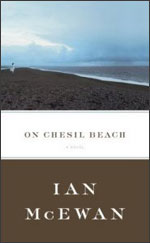| |
2000s |
| |
After Dark, Haruki Murakami
The Amazing Adventures of Kavalier & Clay, Michael Chabon
Asterios Polyp, David Mazzucchelli
Atonement, Ian McEwan
August: Osage County, Tracy Letts
The Book of Revelation, Rupert Thomson
The Corrections, Jonathan Franzen
Chronicles Volume One, Bob Dylan
The Devil in the White City: Murder, Magic and Madness at the Fair That Changed America, Erik Larson
Empire Falls, Richard Russo
A Fraction of the Whole, Steve Toltz
The Gum Thief, Douglas Coupland
A Heartbreaking Work of Staggering Genius, Dave Eggers
The Inheritance of Loss, Kiran Desai
The Inner Circle, T.C. Boyle
The Living, Pascale Kramer
Love in Infant Monkeys, Lydia Millet
The Monsters of Templeton, Lauren Groff
On Chesil Beach, Ian McEwan
Prodigal Summer, Barbara Kingsolver
The Secret Scripture, Sebastian Barry
The Story of Edgar Sawtelle, David Wroblewski
The Tender Bar, J.R. Moehringer
The Year of Magical Thinking, Joan Didion
Then We Came to the End, Joshua Ferris
Veronica, Mary Gaitskill
Zeitoun, Dave Eggers |
|
|
On Chesil Beach, Ian McEwan
Nan A. Talese, June 5, 2007
Love, some insist, is grand—a big emotion best suited for narration in lengthy books or epic films that span decades, generations and wars in exhaustive detail. Love is no less reverent or sweeping an experience, though, when encapsulated in condensed form. In fact, if extricated from attributive sprawl, then the complex forces that pull two people together become exponentially magnified. More intimate. More fragile. Take one day. Make it the wedding of two wayward souls. Each moment ticks toward the impending consummation of their vows fraught with individual fears. July 1962. England. The sexual revolution ripples ocean waves far removed from the Dorset Coast, upon which rests the couple’s honeymoon suite above the rocky shores of Chesil Beach. A four-poster bed with crisp white sheets, which should provide comfort and abandon, instead bleeds seamlessly into the cold jagged pebbles below. Physical exterior and human interior furnishings loom large throughout this novel constructed in miniature but realized on a mortal scale. The entire story transpires over barely two hundred diminutive pages in a hardbound edition that is, itself, as compact in cover dimensions as a typical mass-market paperback and thin as a sliver of white frosted layer cake served to reception guests. The prose rings sharp, insightful, and touching, never sparing a single word, although the consequence of words unspoken weighs heavily on and off the text. Reading too fast out of eagerness to reach the end risks overlooking the modest yet nuanced construction. Even deliberately read, entry is quick, and egress follows in what would be deemed premature duration by most standards. Thus, begins an explanation for the predisposition to write-off the novel … novella? … as some kind of disposable diversion among significant works with greater tangible heft. But that cannot be done, when months after reading the story, thoughts of Edward and Florence, the tormented newlyweds, endure as selfish and selfless permutations of love with a heartbreaking question lingering about how things may have been different, if only the characters had just a little … longer. More. The novel need not require even an additional comma for readers to ponder the answer. Its disciplined restraint demonstrates that merit is not measured by quantity, and, on that subject, the less said, the better.
-MEG

|
|
 |

